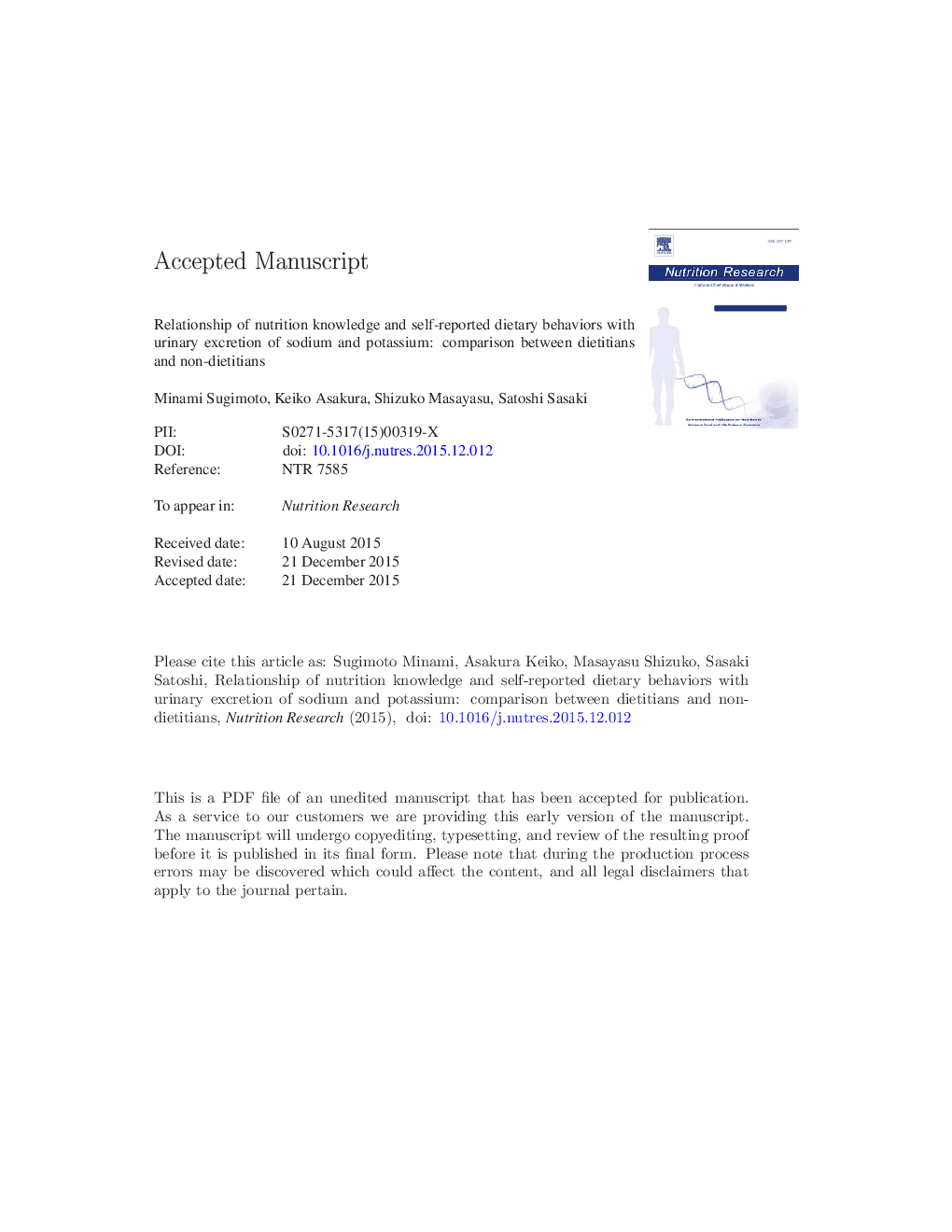| Article ID | Journal | Published Year | Pages | File Type |
|---|---|---|---|---|
| 5904323 | Nutrition Research | 2016 | 40 Pages |
Abstract
The effectiveness of better nutrition knowledge and dietary behavior on healthier dietary intake is still controversial. We hypothesized that nutritional knowledge and dietary behavior are associated with sodium and potassium intake in adult women. A cross-sectional study was conducted at welfare facilities located in 20 areas of Japan. Ninety-nine female dietitians and 117 nondietitians aged 20 to 69 years participated. Sodium and potassium intake were assessed with two 24-hour urine collections and 4-day semiweighed diet records. Nutritional knowledge and dietary behavior were accessed with 3 questionnaires. Analysis of covariance was performed to compare sodium and potassium excretion and selected nutrition and food intake between dietitians and nondietitians. After adjustment for age and smoking habit, sodium and potassium excretion did not significantly differ between the 2 groups (3857 vs 3959 mg/d, P = .57, and 2016 vs 1886 mg/d, P = .10, respectively). Sodium/potassium ratio was significantly lower in the dietitians (P = .044). The dietitians used food labels for sodium contents more often than the nondietitians and consumed more fruits and vegetables (P = .048 and P < .0001, respectively) and less sugar and confectionaries and fat and oils (P = .016 and P = .010, respectively). In conclusion, the higher level of nutritional knowledge and better dietary behavior were not associated with either sodium or potassium excretion but were moderately associated with sodium/potassium ratio.
Related Topics
Life Sciences
Biochemistry, Genetics and Molecular Biology
Endocrinology
Authors
Minami Sugimoto, Keiko Asakura, Shizuko Masayasu, Satoshi Sasaki,
